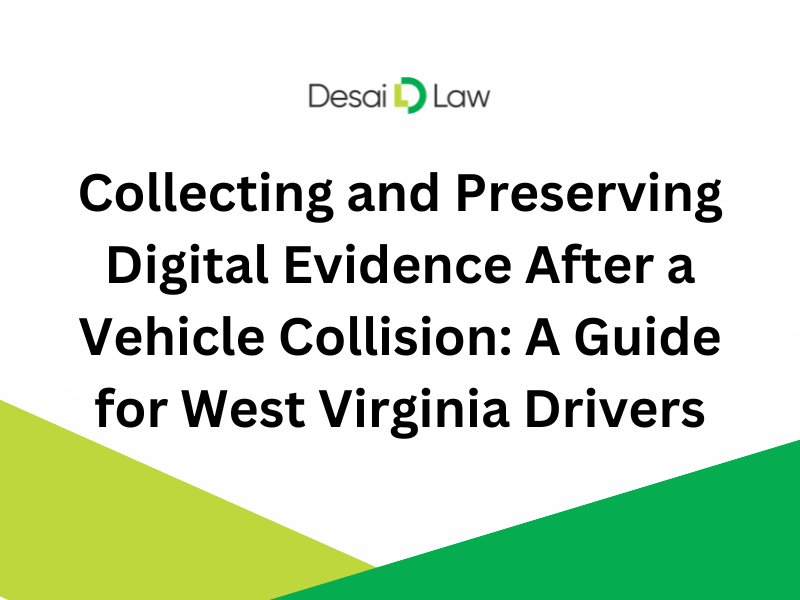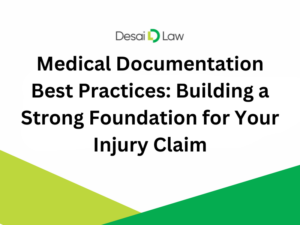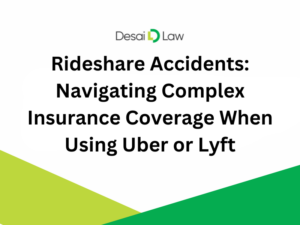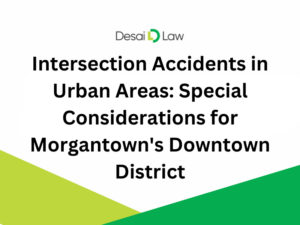Car accidents can be terrifying. One moment, you are driving, and the next, you might be dealing with damage to your car and injuries to yourself or others.
In today’s world, many of us use phones, dashcams, or security cameras that can record important details about a crash. This kind of information is called “digital evidence.” It can help prove what happened and who might be at fault. But how do you collect and protect it?
Why Is Digital Evidence Important After a Car Accident?
Digital evidence can show exactly what happened in a crash. Unlike memory, which can fade or be unclear, a photo, video, or text message does not forget. For example, a dashcam might capture someone running a red light. A phone might also have text messages that show a driver was distracted right before a collision. This kind of proof can help you if you need to file a claim or go to court.
Insurance companies often look for strong evidence when deciding who pays for damage or injuries. If you have clear images or data that show how the accident happened, it can make your case stronger. Without good proof, it might be harder to show the other driver was at fault. That can make it more difficult to get fair compensation.
What Are Common Types of Digital Evidence After a West Virginia Car Accident?
Many people think digital evidence is just photos from a phone, but it can be much more. Digital evidence after a vehicle accident in West Virginia might include videos, messages, and even electronic car data. Technology in cars can record speed, brake usage, and more.
Here are a few examples of what might help prove your case:
- Dashcam Video: Shows the moment of impact or the driving behavior just before the crash.
- Surveillance Footage: Security cameras from nearby businesses or homes might have recorded the accident.
- Cell Phone Records: These can show if someone was texting while driving.
- Car Computer Data: Many modern cars store details like how fast you were going or if you slammed on the brakes.
- Social Media Posts: Sometimes, a driver posts something admitting fault or showing careless driving.
Digital evidence can show the truth clearly, which can make insurance companies or a court more likely to see what really happened.
How Do West Virginia Laws Handle Car Accident Reporting?
In West Virginia, drivers have certain duties after a crash. If someone is hurt or there is major car damage, you must tell the police right away. According to West Virginia Code § 17C-4-6, a driver involved in a crash causing injury or a lot of damage must call local police, the county sheriff, or the state police. You should also share your name, contact details, and insurance information (see § 17C-4-3).
When the police investigate a car accident, they write a report. This might be done on paper or electronically. Under § 17C-4-7, the investigating officer must finish that report within 24 hours of finishing their investigation. They send it to the Division of Highways. Anyone involved in the crash, as well as their insurance agents, can get a copy at no cost. This official police report can back up your story about what happened.
What Should You Do Right after a Car Accident in West Virginia to Collect Digital Evidence?
Right after a collision, it is normal to feel shocked or scared. But if you can safely do it, collecting digital evidence can help you later:
- Take Photos and Videos: Use your phone to take pictures of the damage, injuries, and where the cars ended up.
- Record Skid Marks or Road Conditions: Show weather, lighting, potholes, or anything else that might have played a role.
- Check for Witnesses: If someone nearby took a video or photo, politely ask for a copy of their contact info.
- Ask about Security Cameras: Check if a store or a home around you has cameras that might have filmed the crash.
- Stay Safe: Only do this if you are not badly hurt and it is safe to be near the accident scene.
Having these details can give a clear story of what happened. The more thorough you are now, the better off you might be if there is a dispute later.
How Do Our West Virginia Car Accident Lawyers Help?
Collecting and preserving digital evidence might feel overwhelming. Our West Virginia car accident lawyers at Desai Law understand how important it is to build a strong case. We know the rules of evidence and can guide you in handling and sharing your evidence. We can also contact others who might have evidence, like local businesses with surveillance cameras, to get that proof before it is erased.
Our car accident attorneys can also help you understand West Virginia’s rules for reporting and preserving evidence. If the other driver or their insurance company claims something else, we can show them the solid proof you gathered. If they ignore it or refuse to give you a fair settlement, our West Virginia car accident lawyers can use that evidence in court to fight for what you deserve.
Contact Our West Virginia Car Accident Attorneys Today to Protect Your Future
Car accidents can happen in the blink of an eye, and the aftermath might feel very confusing. However, taking the right steps with your digital evidence can make a major difference in your case. Store your photos, videos, and data safely, and share them with the police and your attorney. Follow West Virginia’s rules for reporting accidents, and do not wait too long to act.
At Desai Law, our team of West Virginia car accident lawyers understands how important digital evidence can be. If you have been in a collision and need help collecting, preserving, or using digital proof, contact us today at (304) 974-1974. We will guide you through the legal process and fight to protect your rights every step of the way.





